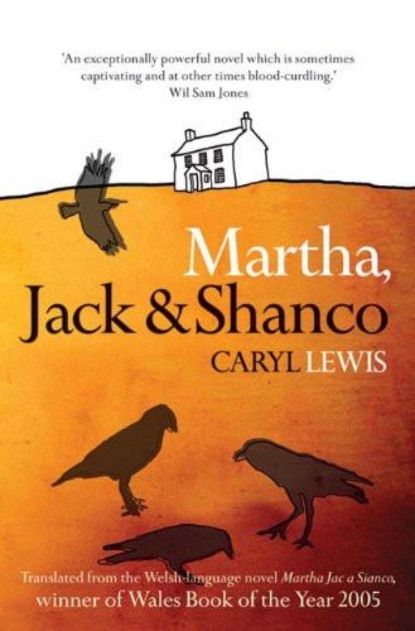Objętość 160 stron
0+
O książce
A tight, close-up little drama with rural characters, including slow Sianco who keeps his terrier under his jumper at all times . Their farmhouse is Graig-ddu ( Black Rock ); The orchard came right up behind the house, making it dark and damp; the wallpaper s original light blue a distant memory, since by now it was blackened by smoke. , no rural idyll but Lewis eye for detail gives us pleasure amidst the squalor and unpleasantness (as those who romanticise rural existence might see it). Her eye is an eye for humour too; As she put the teapot on the table, Jack pulled off his hat and gave it to the pot to wear while it brewed the tea . Staccato chapters envision the repetitive uncomfortable moments of these isolated farming siblings life, frying bacon and potatoes, slaughtering turkeys or training sheepdogs. But there is a drama unfolding here about marriage and property as in the best Jane Austen. One commentator (Diarmuid Johnson) sees the story of the three siblings in their hillside farm as a metaphor for the whole Welsh-speaking rural life under threat from both socio-economic change and cultural and linguistic encroachment from English-speakers. If this is the case then the tragedy it outlines is of a population marginalised by the very isolation (and poverty) that has enabled it to preserve the Welsh language. Visiting the churchyard to lay a Christmas wreath on Mami s grave, Martha the daughter of the family notes There were never any flowers except her flowers on the graves: the three of them were the only family left. And of the three, poor old Shanco is slow-witted and dependent, Jack is a miser, lured by the pragmatic glamour of the English-speaking midlander Judy who would transform Graig-ddu into an acculturated dude ranch. Martha is the only one as tradition or rather memory-bearer of her clan in a position to combat elder brother Jac s nihilistic vision: There s nothing here, Martha. It s all finished. We re all finished. The story of this long slow retreat of an old way on the Welsh hills is expressed in the poignancy of Martha s patrilocal dilemma: if she marries her patient admirer Gwynfor she must move from the old farmstead, leave it to Jack and Judy and Judy s wasteful horses and crass petty-bourgeois Anglo ways. Lewis masterfully builds up a sense of foreboding in this tight family scenario, of irreconcilable, deep-seated long-lived conflict. We only sense that something must happen, that some spark will detonate the gunpowder. Less obviously there are mysterious elements in the narrative huge threatening crows for one that provide an essential depth, the space for the unresolved and unknown that real writing needs. Inter alia there is plenty about animals here too, including an amusing account of a sheepdog s intense jealousy and protectiveness for his master; Glen would also walk between Jack and Gwen.... When they started going out, Glen would bark at her and refuse to settle until she was on her way. After six months or so the dog would let them hold hands but he would walk between them under their clasped hands. He would also sit between them on the settle. All in all a graphic and beautifully-described portrayal of farm life and place, a real confrontation with a particular kind of existence.
